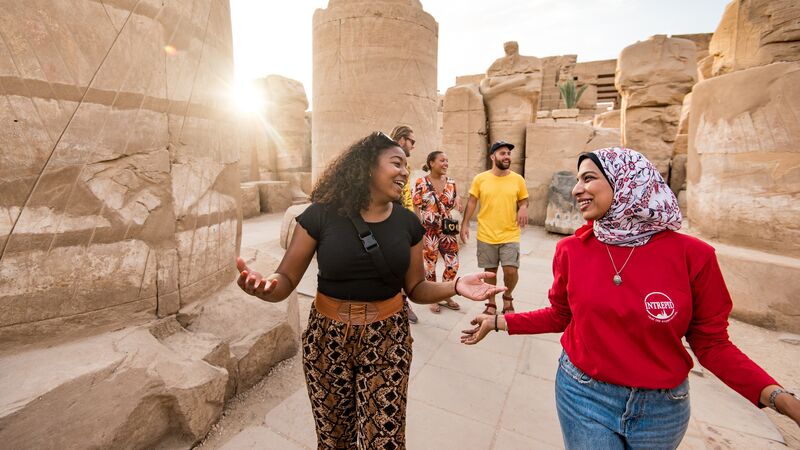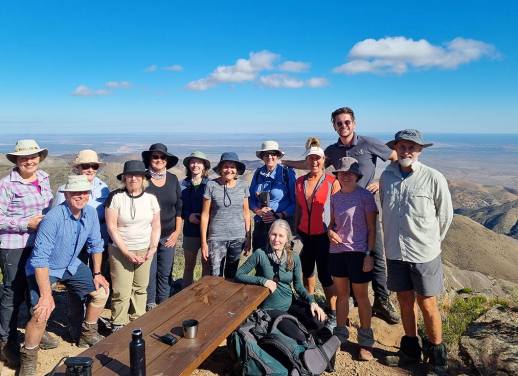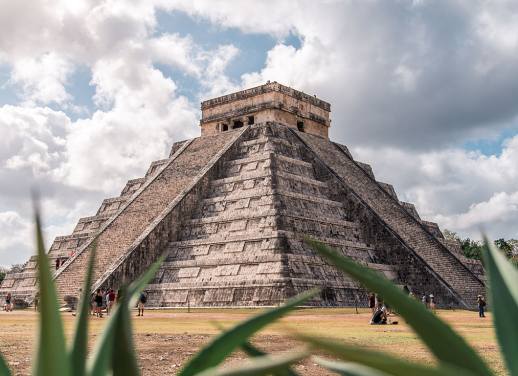Choosing where and who you travel with can be a daunting decision that can shape your entire adventure. Thanks to social media, more affordable flights, and new airline routes, places that were once considered remote have become effortless to visit.
Now more than ever, responsible travel is essential. Whether you’re traveling solo, with family, or friends, choosing to travel in an organized group with a responsible tour operator is one of the most rewarding ways to explore.
Finding an operator who shares your personal values takes the pressure off planning and researching the trip on your own, especially when it comes to making responsible travel decisions.
Regardless of which operator you go with – I’m obviously quite partial to Intrepid, a leader in carbon offsetting, child protection, and animal welfare – here are five things to consider so you can feel good about your next adventure.
1. Find out how they’re minimising their global impact and carbon offsetting
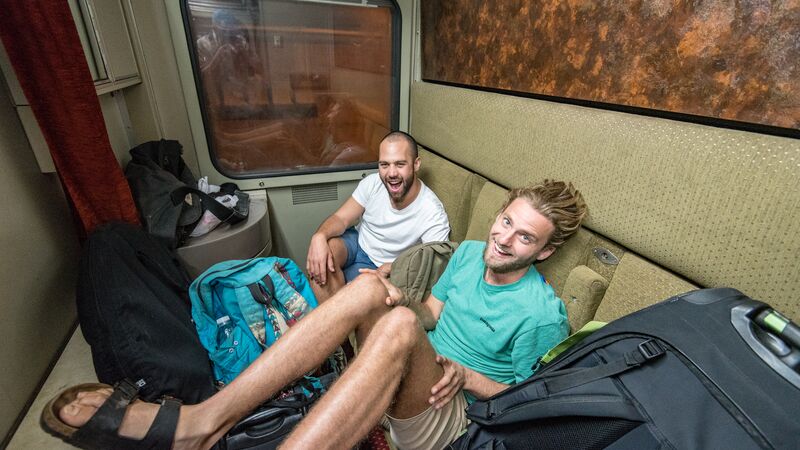
Ditch the big coach and get around on local transport.
Travel – especially by air – is a huge source of greenhouse gas emissions. A scientifically proven reality that we as travelers can’t avoid is that the carbon-based fossil fuels burned from planes, trains, buses and cars are contributing to global warming. While most of us probably won’t stop travelling altogether, a responsible travel company will prioritise ways to reduce and balance out their greenhouse gas emissions.
What exactly is carbon offsetting?
To put it simply, carbon offsetting (or reducing your carbon footprint) is compensating for the carbon-dioxide pollution a business generates by preventing the same amount of pollution from happening elsewhere on earth, or by removing an equal amount of emissions that are already in the atmosphere. This can be done by allocating funds to emission-reduction programs (which can be bought and sold through brokers and online retailers), investing in renewable energy (such as solar, wind, or geothermal power), or by planting trees, which naturally pull carbon dioxide from the air.
RELATED: THIS IS HOW INTREPID OFFSETS YOUR TRIP
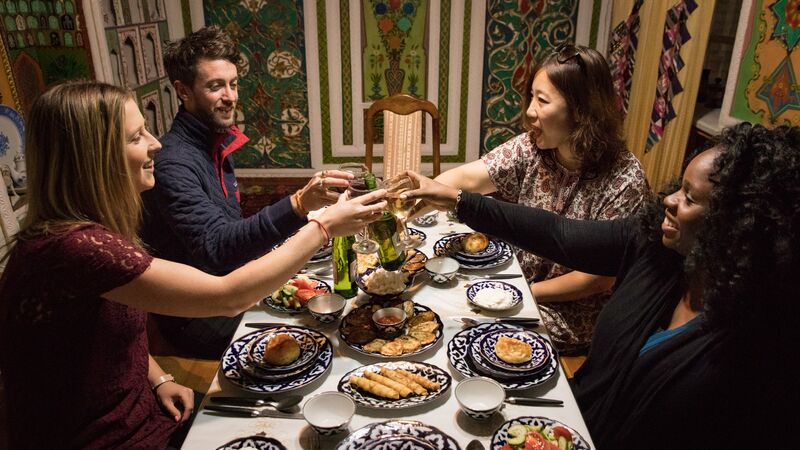
Try a cooking class with a family (and then eat it!).
Take some time to dig a little deeper into each operator’s environmental practices. Liz Manning – Intrepid’s Responsible Business Manager, who looks after the social and environmental initiatives – says to look beyond bold claims and great media coverage. “Do a little digging to find out how they are tackling their environmental impacts,” says Manning. “If they say they’ve banned plastic, look into if they’ve provided details on how they’ve implemented it, and look for more transparency.”
Basically, do your homework. Intrepid has been carbon neutral (offset an equal amount of emissions that they’ve put out into the world) since 2010 and have since offset more than 250,000 tonnes of carbon dioxide emissions by investing in a series of renewable energy projects. Any responsible tour operator’s goal should be for you to continue exploring the world and still feel good about it.
RELATED: 10 WAYS YOU CAN BE A RESPONSIBLE TRAVELLER
2. Look for less-touristy experiences
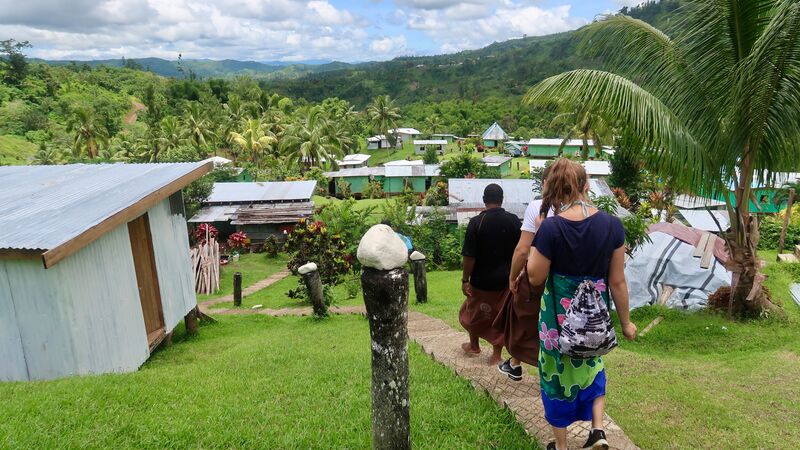
Check out community-based tourism projects, like this one in Fiji.
Overtourism is a hot topic at the moment. When roads become congested with tourist vehicles, rent gets so high that locals are pushed out of their homes, natural wonders become overcrowded and damaged, and wildlife becomes scarce all because of an influx of travelers, it’s no longer sustainable.
Read up on itineraries and look for tours that include destinations a bit further afield, like spending the night at a locally run village homestay in Cambodia, or learning about Berber culture at a gite in Morocco’s Atlas Mountains.
RELATED: IT TAKES A VILLAGE: HOW THE BALINESE SAVED A REEF AND THEIR COMMUNITY
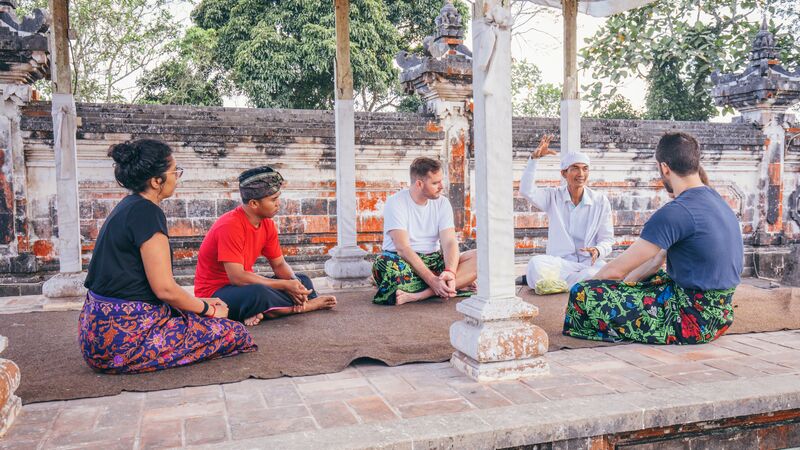
Learn about Balinese culture (and not a Bintang in sight).
Choose to make a conscious effort to take the road a little less traveled, and to visit towns and villages that may even be relatively unheard of – at least for now. You can also help keep tourism numbers up year-round by traveling to a destination in the off-season. European Christmas markets are a feast for the senses in winter, and Asia is full of cultural experiences, even during monsoon season.
3. Check how they really feel about animal welfare
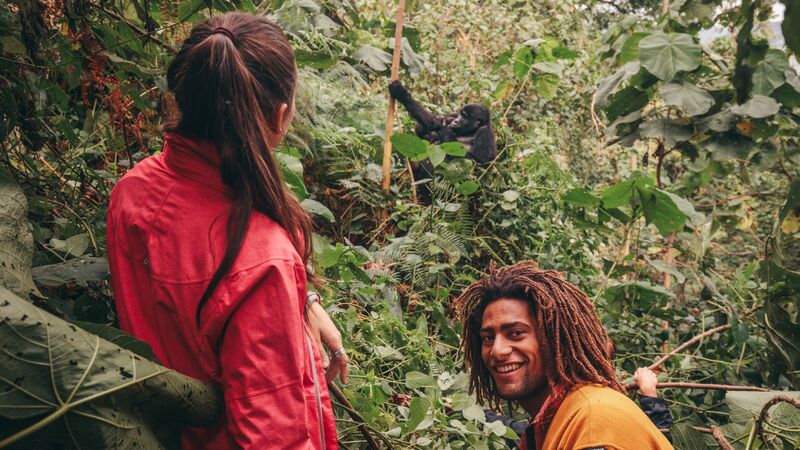
Observe wildlife where they belong: in the wild.
I love seeing wildlife up close as much as the next traveler, but before doing any animal-related activities, ask yourself: ‘Do I need to physically interact with an animal to learn about it?’. Do your research and steer clear of tours taking you to places where animals are doing something other than their natural behaviour. As a rule of thumb, if there’s any form of physical interaction with wild animals – like holding, patting, or riding – or animals dancing, painting, or playing sports, that’s indicative that they’re being used as a lucrative source of entertainment. Places like the tiger temple, and activities like lion walks and elephant rides pose risks for both the animals as well as travelers.
RELATED: THIS IS WHY WE NO LONGER RIDE ELEPHANTS
“There’s a lot of greenwashing happening, where zoos and animal centers are re-branding themselves as conservation parks and animal-education centers, but it’s just language used to ensure their visitor numbers don’t drop, since people have become more informed of the conditions that many animals are kept in,” says Manning.
Choose a company that takes you to see animals in their natural habitat. Opt instead for a safari across the Ngorongoro Crater in search of black rhinos, visiting an orangutan rehabilitation center in Borneo, or watching chinstrap penguins nesting during a landing on the Antarctic Peninsula. Don’t fret, the smell of a penguin rookery, seeing tiny chicks feed on regurgitated krill, or having one waddle right over your boots will be etched in your memory without you ever touching anything.
SUBSCRIBE TO INTREPID’S NEWSLETTER FOR TRAVEL TIPS, COMPETITIONS, GIVEAWAYS & MORE
4. Get as local as possible
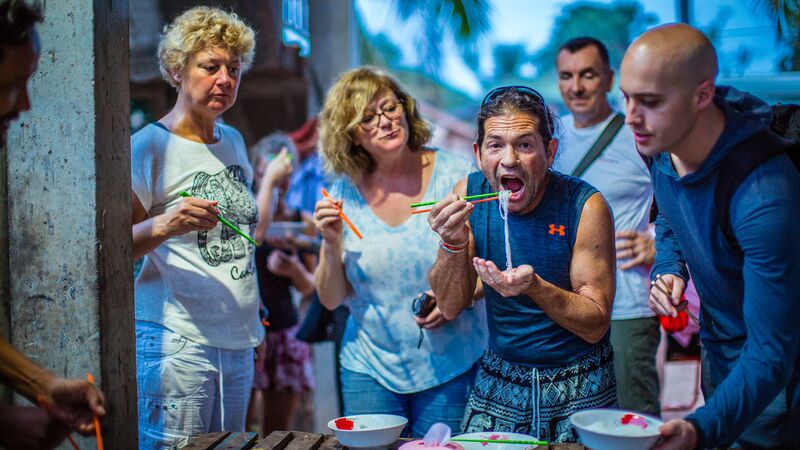
Try local delicacies with a local leader.
If you really want to get to know a place, spend time with the locals. Having local leaders and guides makes any travel experience better. It’s like having a friend show you around, and it also provides employment, puts money into local economies, and makes for a much more culturally rich experience. Choose a company whose guides speak the language (and can maybe even teach you a little), understand the culture, and can share the local customs and history with you. Learning about a destination from someone who lives there is much more valuable than hearing it second hand.
Find out if they travel on local transport, offer homestays in small villages, or cooking lessons with local families. Learning how to communicate without speaking the language, getting your hands dirty in their kitchen, and sharing a meal together will be among your most memorable and humbling travel experiences.
RELATED: HOW WE’RE DEVELOPING COMMUNITY-BASED TOURISM IN MYANMAR
5. Find out if they’re looking out for women and children
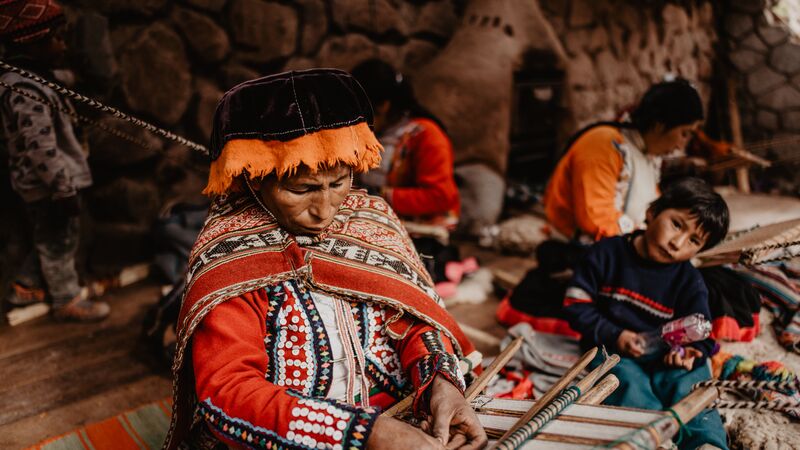
Visit local artisans rather than touristy gift shops.
While most people have the best intentions on trips that involve short-term voluntourism – such as visiting orphanages, and dropping in on local schools to teach English – the reality is that most of these places aren’t in a position properly vet each volunteer, and can be placing children at risk and disrupting classrooms, as well as undermining the local teachers.
RELATED: HOW WE’RE STEPPING UP THE FIGHT AGAINST ORPHANAGE TOURISM
“So that you’re not placing children at risks, think less about what you can do to make yourself feel good and make sure you’re steering clear of activities that let you have access to vulnerable kids,” says Manning. Instead, do your due diligence to ensure that whatever the activity is, it’s benefitting the local community first, and the visitors second. Keep an eye out for tours that include visits to local markets where you can check out the work of traditional artisans, and trips that feature locally owned restaurants, language classes, and cultural heritage training, where you can spend your money supporting the local economy.
Intrepid protects and looks after people by observing basic human rights as well as promoting equality, respect, and freedom amongst staff, travelers and local communities. They’ve also recently made a point to double their number of female tour leaders by educating and providing scholarships and training for young women to become certified as guides, which for me – as a female traveler who frequently travels solo for business and pleasure – makes a big difference.
Find out more about Intrepid’s approach to being a responsible business here.

